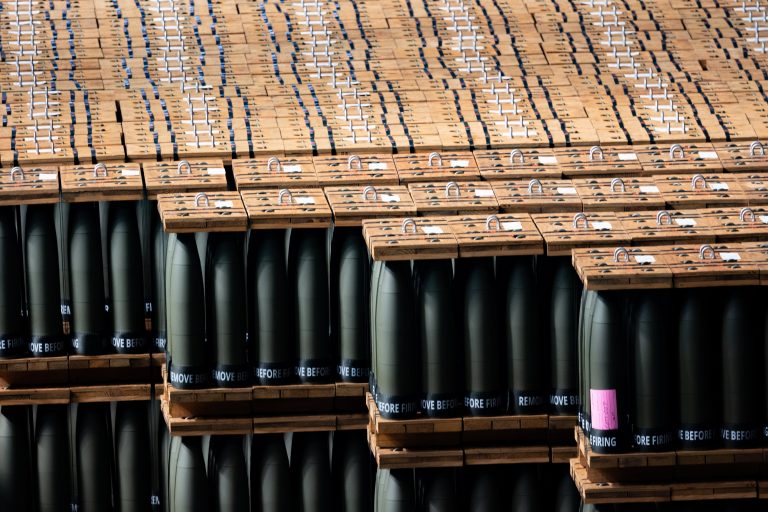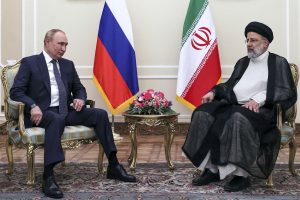Annabel Ludhra, Director & Editor-in-Chief of London Geopolitical Review CIC
The Eurobomb in Light of the 2025 NATO Summit
Not every nuclear threat has to be answered with a nuclear response. It is imperative that the technical responses from Europe are accompanied by robust and global arms control and disarmament projects to effectively come to meaningful conclusions regarding international peace and security.

Germany has decided to engage with France and the UK on the sharing of nuclear weapons. This is in direct response to the Janus-like uncertainty of President Trump’s rapprochement with Russia over NATO, alongside the growing certainty of a multi-order world, where the US’ interests no longer centre around Europe, but rather the Asia-pacific. Doing so has rekindled the old Cold War desire for non-American nuclear dependency – a Euro-bomb. Briefly, let us entertain the multi-order framework for a moment. NATO is stuck between a need for strategic reassessment and US investment. President Trump’s increasing engagement with security dynamics in East Asia and the Middle East ultimately pose a threat to NATO investment.
The US has consistently played a role in shaping European nuclear capabilities through the arms trade. The UK’s Trident II D5 missile, for example, was designed and built in the US by Lockheed Martin. Whilst it is clear that the sub-strategic role of Trident provides an effective means of deterrence against nuclear aggression, we cannot ignore that the very act of manufacturing Trident missile systems entrenches European dependency on US arms and investment.
Let us first take a look at the US’ approach to NATO and nuclear deterrence. From 2020 to 2024, the US supplied 64% of European NATO member state defence imports. President Trump has consistently blamed NATO allies for their lack of defense investment and dependency on US nuclear deterrence, like an overgrown child clinging onto their parents for protection. Whilst the 2025 Hague Summit may have shown the US’ desire to reaffirm its position in NATO, with Germany again aiming to host US non-nuclear cruise missiles, this argument remains insular. President Trump’s call for a 5% increase of GDP spending for defence is not reflective of a desire for NATO solidarity and collective security, but rather is a direct threat that America might withdraw from the alliance if its allies fail to meet its financial commitments. Doing so has riddled Europe with anxiety, particularly amidst the looming fear of Russian nuclear threats.
It is important to note how in reality, President Putin has failed to intimidate Ukraine with its nuclear arsenal, nor deter Ukraine from attacking Moscow and invading Russian territory altogether. This does not mean, however, that the fear of a prospective nuclear war is irrational. With NATO member states from the European Eastern flank, the Baltic countries, Romania and Poland, facing increasing anxieties of Russia’s aggression whilst being victims to President Trump’s increasing ‘flip-flop’ between NATO and Russia, it becomes increasingly clear that Europe must respond, as evidenced by France’s President Macron opening up dialogue for a potential French nuclear ‘umbrella’.
With unstable leaders housed in Washington and Moscow, it is undeniable that Europe has felt a desire to produce its own nuclear deterrent. A ‘Eurobomb’, a potential US-free ideal, would ultimately provide Germany and France with their own bargaining chip for the international security round table. With member-states like Poland being the third largest military in NATO, holding over 200,000 active personnel, whilst being projected to increase its defence spending to 4.7% in 2025, and Germany’s Friedrich Merz affirming commitment to 5%, it is evident that there is a new arms race developing in Europe.
Whilst Germany’s Merz has sought to take matters into his own hands through seeking talks with Britain and France as an attempt to cultivate a new trilateral nuclear bloc which hedges against US dependence, there are numerous practical issues which make technological cooperation inefficient. Multinational cooperation is slow. Rather, in order to foster nuclear deterrence, member-states are better suited to pursue political discursive practices.
There is a very evident slippery-slope of nuclear escalation within international relations, something exacerbated by the prospect of a Euro-bomb. European leaders should be engaging in a dialogue to kick start negotiations on a nuclear-weapon-free zone in Europe – ultimately turning toward arms control and disarmament amongst UN member states. UN member states should prioritise a new series of special sessions of the General Assembly on Disarmament, fostering a system for global weapons governance to not only regulate all other forms of weapons, but eradicate WMD completely.
Whilst we cannot deny the likelihood of French-German technical collaboration, we must recognise the strategic limitations of this. France’s nuclear deterrence strategy is reliant upon strategic ambiguity, alongside a prioritisation of deterring an attack on French territory. Therefore, the so-called ‘extended deterrence’ is in complete antithesis to the French strategy; a mere ‘mourir pour Dantzig’ which makes Paris a potential target of Russian aggression.
When extending this to the UK, as previously stated, the US and UK defence ties makes Britain’s role in the Euro-bomb fragile. Under the terms of the US-UK Mutual Defense Agreement of 1958, the UK cannot transfer its US-sourced technology to a third party; and it is not like Britain can claim a piece of its nuclear technology is British alone.
Even from a discursive perspective, for years the official five nuclear weapons states – France, Russia, China, the US and UK have, rather ironically, denounced other states from acquiring nuclear weapons in favour of non-proliferation. Despite their attempts, North Korea has consistently increased its nuclear weapons and ballistic missile technology, alongside India, Pakistan and Israel, with Iran perhaps following suit. A Eurobomb further shows the vagaries of power politics and selective security protection. Not only this, but Germany’s call for a Eurobomb problematically suggests that nuclear deterrence is an optimistic ideal. The readiness of European member states to jump on the bandwagon of nuclear weapons ultimately exacerbates the likelihood of another World War, which is why global weapons governance is a realist necessity in effectively ensuring the mitigation of nuclear expansion.
Not every nuclear threat has to be answered with a nuclear response. It is imperative that the technical responses from Europe are accompanied by robust and global arms control and disarmament projects to effectively come to meaningful conclusions regarding international peace and security.







